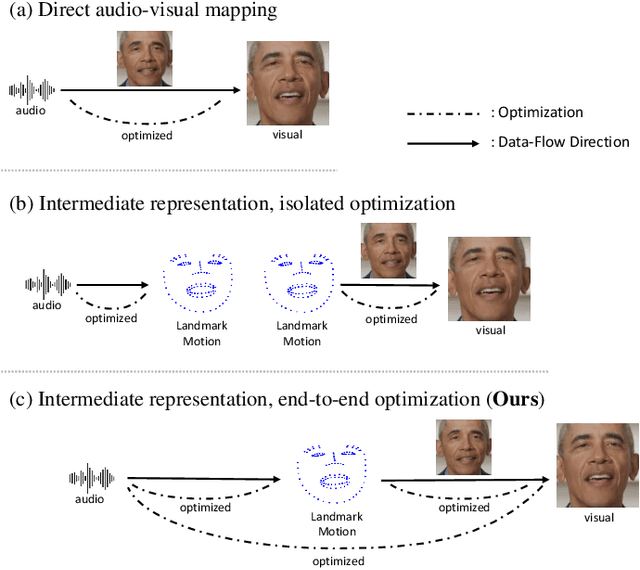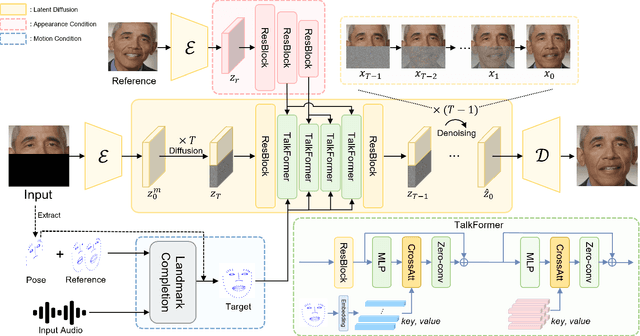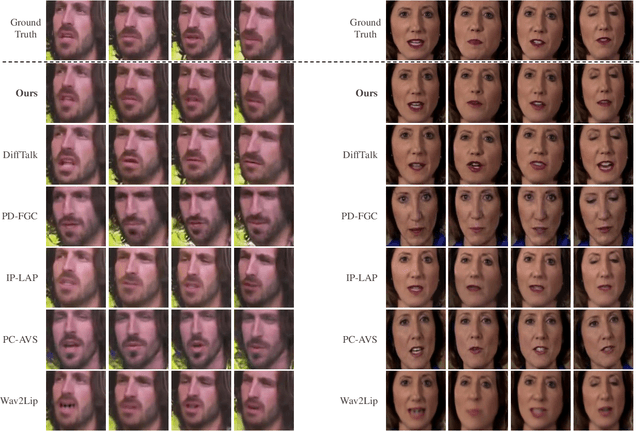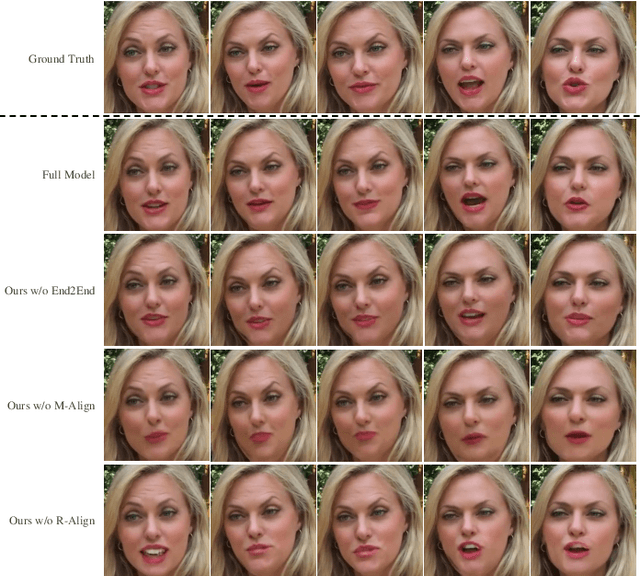High-fidelity and Lip-synced Talking Face Synthesis via Landmark-based Diffusion Model
Paper and Code
Aug 10, 2024



Audio-driven talking face video generation has attracted increasing attention due to its huge industrial potential. Some previous methods focus on learning a direct mapping from audio to visual content. Despite progress, they often struggle with the ambiguity of the mapping process, leading to flawed results. An alternative strategy involves facial structural representations (e.g., facial landmarks) as intermediaries. This multi-stage approach better preserves the appearance details but suffers from error accumulation due to the independent optimization of different stages. Moreover, most previous methods rely on generative adversarial networks, prone to training instability and mode collapse. To address these challenges, our study proposes a novel landmark-based diffusion model for talking face generation, which leverages facial landmarks as intermediate representations while enabling end-to-end optimization. Specifically, we first establish the less ambiguous mapping from audio to landmark motion of lip and jaw. Then, we introduce an innovative conditioning module called TalkFormer to align the synthesized motion with the motion represented by landmarks via differentiable cross-attention, which enables end-to-end optimization for improved lip synchronization. Besides, TalkFormer employs implicit feature warping to align the reference image features with the target motion for preserving more appearance details. Extensive experiments demonstrate that our approach can synthesize high-fidelity and lip-synced talking face videos, preserving more subject appearance details from the reference image.
 Add to Chrome
Add to Chrome Add to Firefox
Add to Firefox Add to Edge
Add to Edge